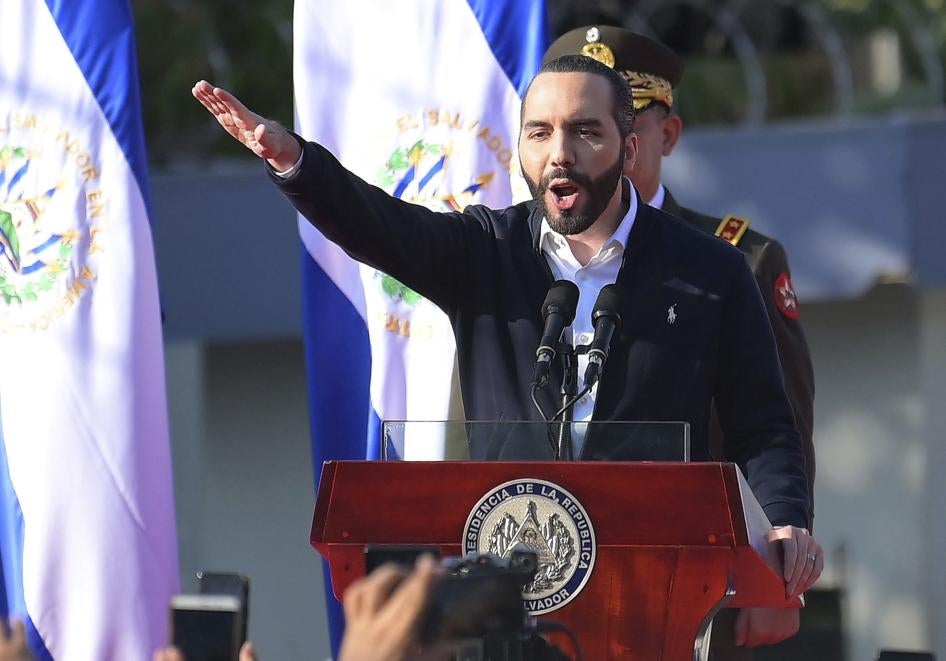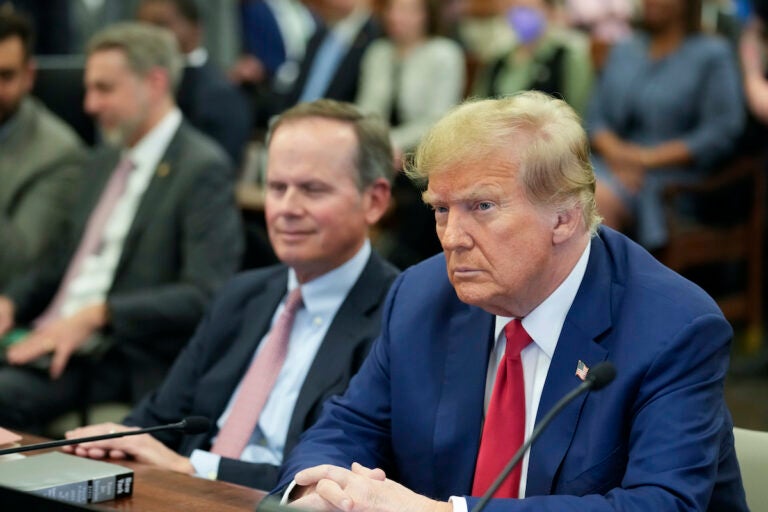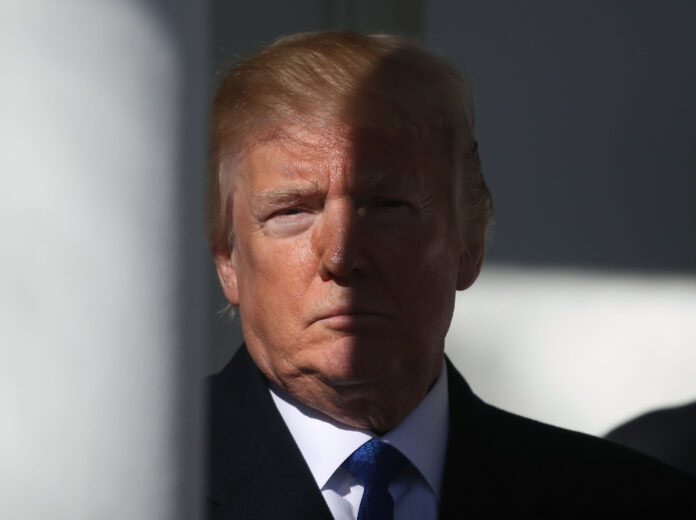If the President ignores the Supreme Court, it can lead to a constitutional crisis. This defiance undermines the checks and balances central to the US government system.
The role of the Supreme Court is to interpret the Constitution and ensure that all branches of government, including the Executive, adhere to its principles. Within the framework of American governance, the judiciary has the power to review executive actions and determine their constitutionality.
The Supreme Court, therefore, serves as a critical balancing force against the potential overreach of presidential powers. If a sitting President chooses to disregard a ruling from the nation’s highest court, it poses a direct challenge to the rule of law and the judiciary’s authority. This situation demands immediate attention and resolution to prevent the erosion of democratic norms and to maintain the separation of powers that is foundational to the United States’ form of government.
The Balance Of Power
The Balance of Power is a cornerstone of the United States government. It ensures no single branch holds too much control. But what happens when this balance tips? Specifically, if the President decides to defy a Supreme Court ruling, it poses a complex challenge to this fundamental concept.
The Framers’ Vision
The United States Constitution was drafted with a vision. Its creators imagined a government where power gets divided. Three branches work together. Their roles are clear. Each one checks and balances the others. This vision aimed to protect freedom and prevent tyranny.
Separation Of Powers
The separation of powers is key to U.S. governance. Three branches exist: Legislative, Executive, and Judicial. Each has unique powers. They must cooperate yet remain independent. This design prevents any single branch from dominating. It relies on a system of checks and balances.
- Legislative makes laws.
- Executive enforces laws.
- Judicial, led by the Supreme Court, interprets laws.
When one branch, like the Executive, ignores another, such as the Judicial, it disrupts this balance. The President defying the Supreme Court is rare. Such actions could lead to a constitutional crisis. The trust in government can erode. Other branches may step in to restore order.
Throughout history, such tensions have occurred. Each time they raise important questions. Can the President ignore the Supreme Court? If so, what are the consequences? Enforcing the Court’s decisions falls partly on the President’s shoulders. Disobedience would lead to a complex constitutional dilemma.
Congress holds the key to one possible response. They can impeach the President. Impeachment is a powerful check on Presidential overreach. Public opinion also plays a critical role. Citizens expect the President to uphold the law. Failure to do so might sway public support, influencing Congress to act.
| Branch | Function | Checks and Balances |
|---|---|---|
| Legislative | Makes laws | Can override vetoes, confirm appointments |
| Executive | Enforces laws | Can veto bills, appoint judges |
| Judicial | Interprets laws | Can declare executive actions unconstitutional |
Ultimately, the Constitution and public expectation uphold this balance. When strained by actions like Presidential defiance, the strength of America’s democracy gets tested. The interplay between branches, designed by the framers, is crucial. It endures as the backbone of American governance, democracy, and liberty.

Credit: www.hrw.org
Presidential Defiance In History
The relationship between the President and the Supreme Court often reflects the delicate balance of powers in the US government. Across the span of history, instances of Presidential defiance cast light on the impact of such actions on American democracy. Exploring these moments helps us understand the possible ramifications when the executive branch ignores judicial authority.
Historical Incidents
Presidential defiance might seem extraordinary, yet history books detail such occurrences. Notable among these is James Madison’s refusal to deliver commissions in Marbury v. Madison, setting the stage for judicial review. Andrew Jackson famously defied the Court regarding the rights of Native Americans in Worcester v. Georgia. President Abraham Lincoln, during the Civil War, suspended habeas corpus despite court opposition.
- Marbury v. Madison (1803): Seed for judicial authority planted.
- Worcester v. Georgia (1832): Presidential challenge to Native American rights.
- Lincoln’s Habeas Corpus Suspension (1861): Civil liberties amid wartime tested.
Consequences Faced
The repercussions for ignoring the Supreme Court vary based on the epoch and context. In some cases, blatant disregard led to political turmoil and questions over the constitutional balance.
| President | Incident | Consequences |
|---|---|---|
| James Madison | Marbury v. Madison | Establishment of judicial review, shaping future legal precedents. |
| Andrew Jackson | Worcester v. Georgia | Execution without presidential enforcement, raising questions about federal power. |
| Abraham Lincoln | Habeas Corpus Suspension | Justified as war necessity, though contested in retrospect. |
Each occurrence left an imprint on the nation’s trajectory. The capacity for a seated President to sidestep the high court remains a potent reminder of the living nature of the US Constitution and its interpretation.
Constitutional Crisis
Imagine a game where one player decides not to follow the rules. Trouble arises. In a sense, the United States could face a similar situation termed a “Constitutional Crisis.” This occurs when the President defies the Supreme Court, shaking the foundational balance of power. Let’s explore what that means for America.
Defining A Crisis
A Constitutional Crisis is a grave challenge to the system. When a President ignores the Supreme Court, conflict arises. This challenge has no easy fix. The President and the Supreme Court hold top authority. A refusal to comply disrupts the checks and balances. This could lead to a standoff between branches of Government.
Impact On Governance
Such unruly behavior carries significant consequences. The Government’s ability to function hangs in the balance. Trust in the system erodes. Other officials might follow suit, breaking more rules. This could lead to:
- Legal uncertainty as laws and Supreme Court decisions lose their grip.
- A possible shift in power as different branches vie for control.
- Public concern and unrest as citizens lose faith in their leaders.
The rule of law could weaken. Democracy might waver. These effects showcase why upholding the Court’s decisions remains crucial.

Credit: whyy.org
The Role Of The Supreme Court
The Supreme Court stands as the final guardian of the US Constitution. It interprets laws and judgements. It has the power to check other branches. This balance ensures no part gets too strong.
Judicial Oversight
The Court looks over other branches. It upholds the rule of law. People must follow its decisions. The Court keeps democracy safe.
Authority Over Executive
- The President must obey the Supreme Court’s rulings.
- If ignored, there could be a constitutional crisis.
- Courts may enforce decisions through other means.
- Ignoring can hurt public trust.
Legal Repercussions For Defiance
Imagine the President decides not to follow a Supreme Court order. This act would shake the very core of the United States’ rule of law. The repercussions of such a defiance range from legal battles to constitutional crises. Let’s dive into what these potential outcomes might look like.
Potential Outcomes
What happens if a President ignores the Supreme Court? The nation enters uncharted territory. Here are a few possible consequences:
- Impeachment Proceedings: Congress might start these against the President.
- Public Outcry: Citizens could demand the President’s compliance.
- Political Fallout: The President’s own party might distance themselves.
- Historical Precedent: Future leaders could reference this defiance.
Judicial Enforcement
The Supreme Court has no army, but it can still enforce rulings. Judicial enforcement works through court orders known as “mandamus” or “injunctions.”
| Order Type | Function |
|---|---|
| Mandamus | Commands a government official to do a specific act |
| Injunction | Prevents an individual or entity from specific actions |
If these orders fail, the issue might escalate to Congress or the public for resolution. It’s a test of checks and balances unlike any other.
Political Ramifications
Imagine a scenario where the President of the United States chooses to ignore a ruling from the Supreme Court. This rare and controversial action could set off a ripple effect of political consequences. The balance of power among the branches of government would teeter. Public trust could falter. Legal norms would clash with executive audacity. Here, we delve into the potential fallout from such an unprecedented defiance, covering likely reactions from Congress to shifts in public opinion.
Congressional Response
Should the President sidestep the Supreme Court, Congress might swiftly spring into action. This body has the constitutional toolbox to address such breaches. Tools range from the soft power of public chastisement to the firm hammer of impeachment. Consider the following actions Congress might take:
- Resolutions: Formal disapproval through bipartisan resolutions.
- Legislation: Laws to reinforce the Court’s authority or limit Presidential power.
- Impeachment: The ultimate check—removing the President from office.
Public Opinion
The people’s voice is paramount in a democracy. Ignoring the Supreme Court could provoke public upheaval or conversely, spark rallies of support. Table beneath illustrates two polarized public reactions:
| Opposition Reaction | Support Reaction |
|---|---|
| Protests and calls for accountability | Rallies backing presidential power |
| Surge in civic activism | Increased partisanship and division |
| Dip in national trust | Consolidation of the President’s base |
Public sentiment often steers the political compass. Strong enough backlash or support could push Congressional members to act or hold back. The balance between maintaining order and championing individual civil liberties becomes critical.
Protecting The Rule Of Law
In the United States, the Supreme Court acts as the apex judicial authority. The rule of law is fundamental for a democracy’s stability. It ensures all citizens and institutions, including the President, yield to the law. But what if the President sidesteps this authority? Protecting the rule of law then becomes paramount, deploying preventive measures and strict compliance protocols.
Preventive Measures
Preventive measures act as safeguards against the disregard of Supreme Court rulings.
- Legislative checks: Congress can reassert the law.
- Media scrutiny: The press can shed light on any defiance.
- Public opinion: Public pressure can sway the President.
- Impeachment: A real consequence for ignoring the court.
Ensuring Compliance
Enforcement is key to maintaining the rule of law.
- Court orders: Mandatory compliance with issued rulings.
- Executive enforcement: Agencies ensure rulings are applied.
| Action | Agent |
|---|---|
| Execution of Law | Law Enforcement Agencies |
| Legal Recourse | Justice Department |
Through these structured mechanisms, the governmental system upholds the law against even the highest office. This balance maintains public faith in the democratic process.
:quality(75)/cloudfront-us-east-1.images.arcpublishing.com/bloomberglinea/JMEBYMLB7VQI3K6UB2ZJAKCSJY.jpg)
Credit: www.bloomberglinea.com
Frequently Asked Questions For What Happens If The President Ignores The Supreme Court
Has A President Ever Ignored A Supreme Court Decision?
Yes, President Andrew Jackson famously disregarded the Supreme Court’s decision in Worcester v. Georgia, leading to the Trail of Tears.
Does The President Have Power Over The Supreme Court?
The President does not have direct authority over the Supreme Court. Executive and judiciary branches are separate to ensure checks and balances. The President can influence the Court by appointing justices, pending Senate confirmation.
Can The President Overturn The Supreme Court?
No, the President of the United States cannot overturn a Supreme Court decision. The judiciary is independent under the system of checks and balances.
What Does The President Evading Ignoring Scotus Decisions Mean?
The president evading or ignoring SCOTUS decisions implies non-compliance with the Supreme Court’s rulings, potentially undermining judicial authority and the balance of powers.
Can The President Defy Supreme Court Rulings?
The President must comply with the Supreme Court’s rulings; defying them can lead to constitutional crises and potential impeachment procedures.
Conclusion
Navigating the potential standoff between a president and the Supreme Court is complex. It challenges constitutional norms and raises profound legal questions. Ensuring checks and balances prevail is critical for democracy. As citizens, staying informed and holding leaders accountable remains our duty in preserving the pillars of our government.

